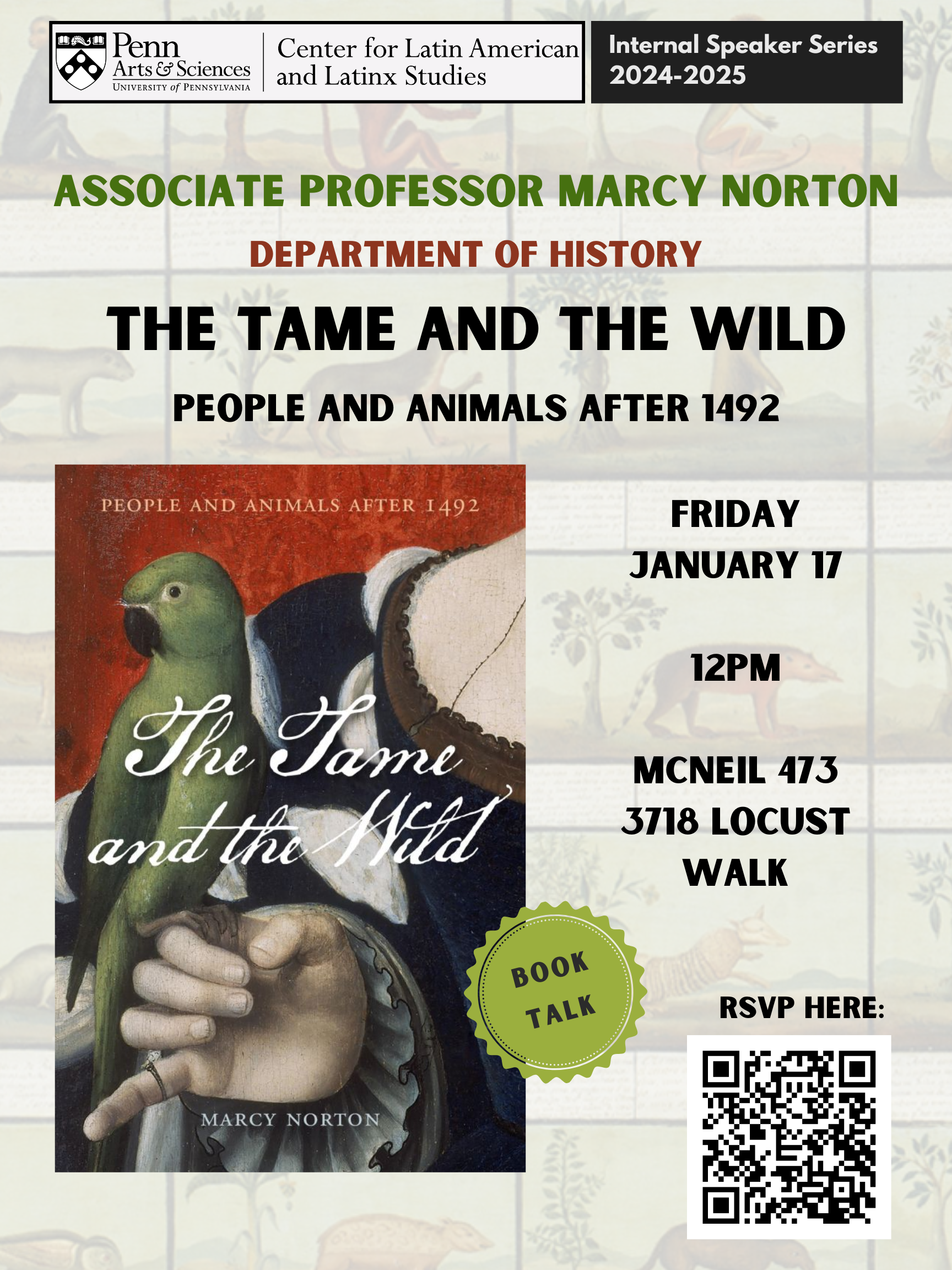CLALSIS
McNeil 473 / ZOOM

Join us for a special CLALSIS talk as Marcy Norton, Associate Professor of History, presents her new book The Tame and the Wild: People and Animals after 1492 (Harvard University Press).
A dramatic new interpretation of the encounter between Europe and the Americas that reveals the crucial role of animals in the shaping of the modern world.
When the men and women of the island of Guanahani first made contact with Christopher Columbus and his crew on October 12, 1492, the cultural differences between the two groups were vaster than the oceans that had separated them. There is perhaps no better demonstration than the divide in their respective ways of relating to animals. In The Tame and the Wild, Marcy Norton tells a new history of the colonization of the Americas, one that places wildlife and livestock at the center of the story. She reveals that the encounters between European and Native American beliefs about animal life transformed societies on both sides of the Atlantic.
Europeans’ strategies and motives for conquest were inseparable from the horses that carried them in military campaigns and the dogs they deployed to terrorize Native peoples. Even more crucial were the sheep, cattle, pigs, and chickens whose flesh became food and whose skins became valuable commodities. Yet as central as the domestication of animals was to European plans in the Americas, Native peoples’ own practices around animals proved just as crucial in shaping the world after 1492. Cultures throughout the Caribbean, Amazonia, and Mexico were deeply invested in familiarization: the practice of capturing wild animals—not only parrots and monkeys but even tapir, deer, and manatee—and turning some of them into “companion species.” These taming practices not only influenced the way Indigenous people responded to human and nonhuman intruders but also transformed European culture itself, paving the way for both zoological science and the modern pet.
Bio:
Marcy Norton (Ph.D. Berkeley) is a historian of the early modern Atlantic World, with a focus on Latin America and Spain. Much of her research is guided by two questions: How did colonialism shape the Americas? And how did Native America shape European modernity? Thematically she is most interested in writing history that explores the intersections of environment, embodiment, and thought, concerns that have guided her work on the history of food, drugs, science and inter-species relationships. Her publications include Sacred Gifts, Profane Pleasures: A History of Tobacco and Chocolate in the Atlantic World (Cornell University Press, 2008, winner of the best book prize from the Association for the Study of Food and Society), “Subaltern Technologies and Early Modernity in the Atlantic World” (Colonial Latin America Review, 2017) and two articles that appeared in American Historical Review, “Tasting Empire: Chocolate and the Internalization of Mesoamerican Aesthetics (2006) “The Chicken or the Iegue: Human-Animal Relationships and the Columbian Exchange” (2015), which won the Council on Latin American’s history Vanderwood prize for the best article in Latin American History. She also co-edited (with Ralph Bauer) a special issue of Colonial Latin America Review entitled Entangled Trajectories: Indigenous and European Histories. (2017). She is currently finishing a book about colonialism and human-animal relationships in early modern Europe and America, which will be published by Harvard University Press.

 Center for Latin American and Latinx Studies
Center for Latin American and Latinx Studies